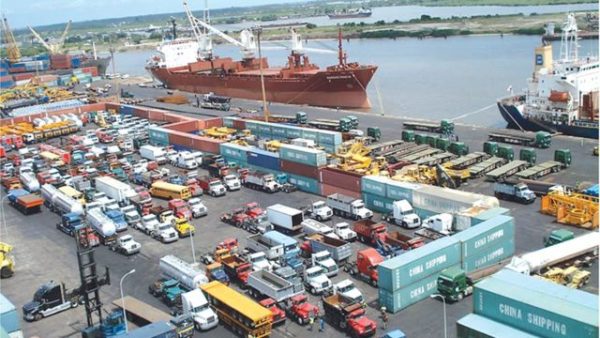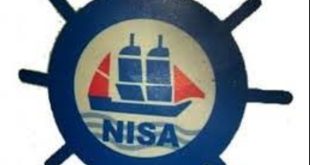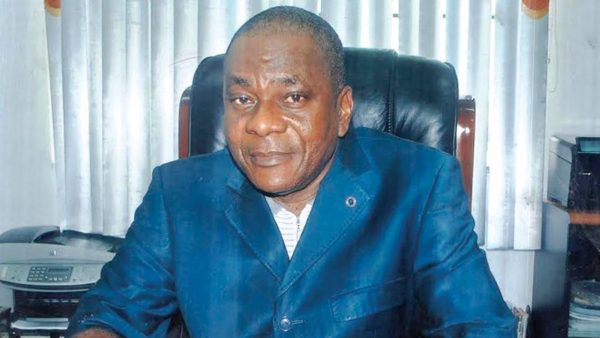 Sequel to a projected growth 10 per cent in the nation’s maritime industry over the next two years, expectations are that local participation in shipping will also hit tremendous landmark, going by the recent policies of the Federal Government.
Sequel to a projected growth 10 per cent in the nation’s maritime industry over the next two years, expectations are that local participation in shipping will also hit tremendous landmark, going by the recent policies of the Federal Government.
Some of the factors that are expected to be the game changer for the sector, hitherto dominated by foreign players, include the halt of waivers for foreign ship owners under the new regime for cessation of cabotage waivers for five years 2019 to 2024.
Also, is the training of more Nigerians under the Nigeria Seafarers Development Programme; empowering cadets under the sea time training programme; and certification for Nigerian seafarers under the Survey, Inspection and Certification Transformation Programme.
In the kitty is also the upgrade of the Maritime Academy of Nigeria (MAN), Oron, to leverage capacity building, and the blue economy agenda, among others.

Nigeria’s maritime sector is the second highest revenue earner for government, with a huge potential to contribute about N7 trillion yearly to the economy. For many years, however, a larger share of the industry was left in the hands of foreigners with attendant capital flight at the expense of the country.
The yearning for more indigenous participation is getting stronger, which explains stakeholders support for Nigerian Maritime Administration and Safety Agency (NIMASA’s) acceptance of more youths in the sector.
Stakeholders believe that if the industry regulators pursued the vision vigorously, the sector’s contribution to the Gross Domestic Product (GDP) will soar, and more employment opportunities will be created, while local capacity and competency will buoy with associated wealth creation.
One of the stakeholders, and Chairman, Nigerian Port Consultative Council (NPCC), Otunba Kunle Folarin, is convinced that the introduction of deliberate shipping development policies would change current status, while urging government to provide more incentives for acquisition of vessels.
The Director-General, NIMASA, Dakuku Peterside, reassured of the agency’s resolve to develop the blue economy, and encourage more indigenous participation, through the flagged off a three-pronged approach.
First, it sought and obtained federal government’s commitment for a tax relief regime for ship owners through the Central Bank of Nigeria (CBN). With this incentive, indigenous ship owners can now acquire new vessels at low cost and gradually build up their fleet.
Secondly, NIMASA is also working with the Nigerian National Petroleum Corporation (NNPC), to ensure that ship owners are given the enablement to participate in the affreightment of the nation’s crude oil. As such, once local players can participate in the crude transportation, they will rally round to consolidate their strength.
Thirdly, the agency is also collaborating with the Nigerian Content Development and Monitoring Board (NCDMB), on the provisions of the Content Act, which prescribes at least 40 per cent indigenous participation in all relevant economic activities in the oil and gas industry.
According to Peterside, the agency’s vision is to integrate the entire ocean economic development through social inclusion, environmental sustainability, and thereafter linking other industry activities as a business model.
Having a coastline of about 850km bounded the Atlantic Ocean; also traversed by a myriad of river system, which provide about 4000 km of navigable inland waterways, covering an estimated area of 199,580 km and having a total landmark of 923,415 km square waterways, Nigeria is definitely primed for a blue economy.
Before now, the story was that infrastructural deficit and funding challenges were impediments to the maritime development, which generally involves marine transportation, and exploitation of living and non-living resources.
A study released by a Federal Government’s committee on Nigeria’s maritime trade some years ago, revealed enormous capital flight in excess of N1.5trillion annually, added to expatriates cost estimated at N600 billion yearly, NCDMB report quoted.
Every activity in the nation’s blue economy is a potential job and wealth creation if resources are properly harnessed around the oceans, seas, harbours, ports, and coastal zones.
It also includes aquaculture, biomedicine, boats and shipbuilding, cables and pipelines, coastal zone management, defence and security, desalination and water treatment, marine recreation, ocean energy and minerals, ocean science and observation, port operations, robotics and submarines, shoreline development, telecommunications, marine tourism, very large floating platforms, weather and climate.
Scaling human capacity for the opportunities ahead, Peterside said NIMASA has trained more than 2,000 Nigerians under the Seafarers Development Programme, and sea-time training for graduates through full sponsorship of their placement on ships, in partnership with some international institutions that have access to ocean going training vessels.
Also, about 200 cadets have done their on-board sea time training under the first phase of the NIMASA fully-sponsored sea time training programme, facilitated alongside the Arab Academy of Science, Technology and Marine Transportation in Alexandria, Egypt.
Onboard training for another 89 cadets was facilitated by the South Tyneside College, UK, making a total of 239 cadets in the first phase of the programme, he stressed that about 2,337 Nigerian seafarers were placed onboard vessels last year, representing a 58.9 per cent increase in the number of seafarers employed compared to the previous year.
Similarly, NIMASA is pursuing the certification of Nigerian seafarers under its Survey, Inspection and Certification Transformation Programme, while most vessels trading within the country’s coastal waters now have at least 70 per cent Nigerian content in terms of manning.
This situation is bound to improve when the Cabotage Vessel Financing Funds (CVFF), to encourage indigenous operators to own more ships.
The CVFF is a two per cent financing mechanism contributed by indigenous ship-owners on every contract done in the nation’s maritime sector, now worth about $124 million (N44.6 billion) as at August 2018, but yet to be disbursed.
The National President, Nigerian Merchant Navy Officers and Water Transport Senior Staff Association (NMNWTSSA), Comrade Matthew Alalade, described CVFF as the only way to revive the fortunes of the sector.
Alalade maintained with access to the Fund, ship owners would be able to acquire vessels to lift Nigerian crude oil, thereby creating wealth and jobs for the unemployed youth.
He called on the government to involve the unions in the negotiation before disbursing the funds to avoid it ending up in private pockets.
President of Ship Owners’ Association of Nigeria (SOAN), Mkgeorge Onyung, said the intervention fund was created to aid Nigerian ship-owners to boost operational capacity, and compete strongly in cargo freightage and that the fund must be disbursed for that purposes.
He noted that: “The CVFF is created for the benefit of indigenous ship-owners, and the fact that it has not been disbursed means that something is definitely wrong somewhere … It is not my job to ensure the CVFF is disbursed, but I believe government is working on the disbursement. We will create a team that will address all issues that affect our members and the CVFF is one of them.”
The Guardian
 MMS PLUS NG – Maritime, Aviation, Business, Oil and Gas News Online Newspaper with coverage in Maritime, Oil and Gas, Aviation, Power and Energy as well as Financial News
MMS PLUS NG – Maritime, Aviation, Business, Oil and Gas News Online Newspaper with coverage in Maritime, Oil and Gas, Aviation, Power and Energy as well as Financial News









